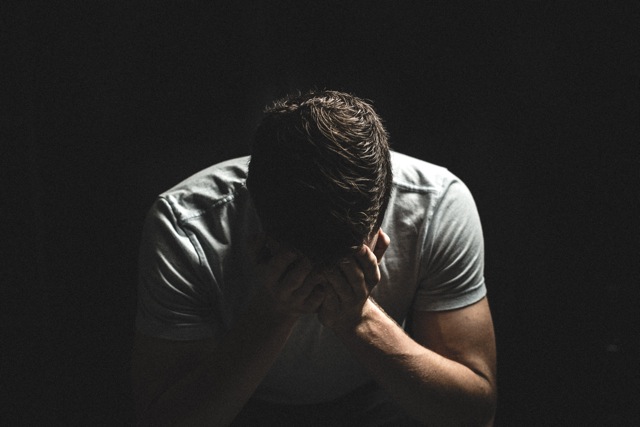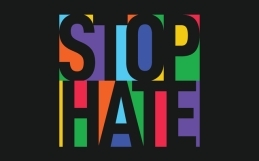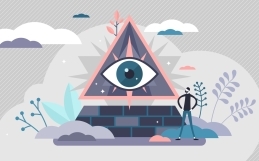
“Every day is a fight. Every morning a battle to get ready for the day. Every afternoon is a fight to stay awake. Every night is a fight to find sleep. And between every fight, is another one. Fighting pain. Constant pain, all day, all night, every single day. The pain hasn’t stopped, but it hasn’t stopped me.”
–Chronic Pain Warrior
A woman recently reached out to me over social media to ask that I write about the topic of chronic pain. She shared with me that she’s gone through tremendous suffering due to a head injury, which has drastically changed her life in many ways. I’ve never personally had a severe injury that limited my functioning on a daily basis, nor could I even begin to imagine what a life changing experience that must be. It’s hard enough to live with the many challenges life brings; it must be especially hard to face the world with chronic pain or the many complications brought on by injury or illness. I feel tremendous compassion for people who have to go through life as if every day is a fight, carrying around pain and feeling helpless to stop it. This article is dedicated to everyone who faces this challenge daily, especially the brave woman who wrote to me for answers during this difficult time in her life.
When you feel like you’ve hit rock bottom with your chronic pain, you have the option of diving into it, being miserable and angry, or seeing it as a healing adventure. Either way, no one will blame you, because your circumstances are unfair and overwhelming. Taking on life one day at a time can help, because right now—this moment—is what’s real. It’s possible to work with your pain every single day, instead of against it. It can seem so easy to feel good when nothing is going wrong, but it’s when things suddenly falls apart and shit hits the fan that you’re really tested. It’s then that you can decide who you want to be and how you want to take on the challenges being presented to you. When hearing life shattering, severely emotional news, it can seem like your life is over. It can feel like you’re at the bottom of a ditch with no ladder; but the good news is, the only way to go from there is up. No matter how alone you might feel, you aren’t; there’s someone at the top waiting to help you, as long as you’re open to accepting it.
Even though I haven’t experienced a major illness and don’t live with any disabilities, I’ve been dealing with chronic neck and shoulder pain for a few years. For a while I thought, “I’m going to fight this!” Interestingly, I believed this even before knowing what caused the pain, which remains unclear. That’s because I recognize that at some point, we have to make a decision about how we’re going to deal with chronic pain: let it be, make peace with it, or fight it.
Approaching something chronic by getting into battle mode is a typical initial response. But it can be counterproductive, because emotions like anger and actions that are combative in nature can create more frustration and produce more inflammation in the body, leading to more pain. Of course, it’s normal to be upset over having to suffer; but eventually you have to decide if that’s how you really want to live your life. You have no control over the pain, but you do have control over how you decide to respond to it. When I decided to surrender to the pain, I allowed myself to go to a higher level of healing that started from the inside out. This is different than just giving up; it’s accepting what is and working with it instead of against it. Some things in life simply don’t have cures or quick fixes.
My chronic pain is probably the result of severe stress, bad posture, poor nutrition and poor sleeping habits over many years. At some point I realized that all I could do to manage the pain is surrender. That, for me, meant doing what was necessary to reduce the pain and its impact on my daily life. Instead of being upset about having to deal with discomfort all the time, I try and float with what is. I make decisions the best way I can and do what fits with my situation. I have a comprehensive treatment plan of monthly massages, bi-weekly chiropractor visits, healthy eating, light workouts, use of natural anti-inflammatory lotion, and a heating pad when necessary. At this point it isn’t about curing my chronic pain, it’s about managing it, living with it, and occasionally screaming at it.
Living With Pain
Dealing with pain or disability can bring you to your knees forcing you to think about your life. It puts everything to a stop, slows you down, and can run your life if you let it. It shows you that anything can change drastically in a moment. When I first started feeling stiffness in my neck and shoulders, I went to see a physician. I had a tingling sensation up and down my arms and couldn’t even turn my neck. That was very scary for me, because I had no idea what was going on with my body. It stopped me from my daily activities because I could barely move. I was literally stiff as a board. The results of an x-ray revealed a pinched nerve and muscle spasms. The doctor prescribed me muscle relaxers and said I needed to have less stress in my life. Well, that advice didn’t work for me. I was terrified to take medication, and I had no idea how to reduce my stress—especially after receiving that news! I was more stressed than ever just hearing that, which further agitated me because it meant I was a participant in creating my pain.
After doing some research on my own, I decided I needed to find a good support team, knowledgeable doctors, and a treatment plan that fit with me. That’s when I found a good massage therapist, chiropractor, and a I diet plan filled with healthy foods that reduce inflammation. Of all the muscle relaxers I was prescribed, I took only one pill. My plan to manage the pain has been time consuming and costly, but I made it a priority in my budget, deciding that I’d rather my wallet hurt than my body.
Dealing with chronic pain makes it hard to deal with life the way you once did. You may think, “Now how do I go on with this extra thing I have to deal with?” For me it started with self-care and making myself a priority. You must consider, “If now isn’t the time to take care of myself and love myself, when will be?” This is the time you need yourself the most. Now I see my pain as a constant reminder that I need to take care of myself, rather than considering it something that’s going to hinder me.
Living with Uncertainty
“You just do it. You force yourself to get up. You force yourself to put one foot before the other, and God damn it, you refuse to let it get to you. You fight. You cry. You curse. Then you go about your business of living. That’s how I’ve done it. There’s no other way.”
–Elizabeth Taylor
Uncertainty is scary for most people. When dealing with chronic pain, there are a lot of unknowns involved; the key is trying to get comfortable with uncertainty. By taking care of yourself, finding the right doctor(s), creating a treatment plan, and thoroughly accepting the unknown, it all becomes much more manageable. Living with all of that pain, knowing you are not alone, and that you have a plan can help in living cohesively in a place of uncertainty.
You really don’t know how any given day is going to go, and that can be scary. Life is a mystery as it is, and dealing with pain and suffering brings this mystery to the forefront. All you can do is take care of yourself the best way you can and know it’s okay to rest when it gets too overwhelming. You aren’t wasting time, you’re recovering and listening to your body.
Having an unconditional acceptance of what is allows you to flow within chaos—riding the waves of life, reflecting every day, getting to know yourself in this predicament, allowing yourself to be present for yourself. The best thing you can do for another person in pain is to offer your presence. You can be there for yourself in the same way. When you afford loving kindness to yourself, your nervous system calms down, allowing you to make wiser decisions.
It helps to remember you are connected to something much greater, and from that place you won’t ever feel alone. Have compassion for yourself, rest, and take each day at a time. Whenever you are angry at your chronic pain, think about what you have accomplished and the strength you have received by going through it.
10 Myths About Chronic Pain
“I realized this week that I just cannot do it all. So I will choose to do what I can, fabulously.”
–Clinton Kelly
1. If you can’t find the exact cause of your pain, it must be in your head.
2. You should expect that one day your pain will be cured completely.
3. Chronic pain treatment should be effective within a short period of time.
4. If you look healthy, you can’t be in pain.
5. If you’ve failed to control your pain in the past, you’ll fail now.
6. Chronic pain is the only reason for all the problems you have.
7. Pain that reduces through stress management technique is imaginary pain.
8. Your pain will improve if you remain inactive and avoid physical activity.
9. To consider yourself worthwhile, you must be able to function in the same way you did before your pain.
10. You must have complete control over everything in your life.
It can help to share your vulnerabilities, including your story of chronic pain. Please, let me know your story and what has been helpful in managing your chronic pain. It’s important for people who are suffering to hear stories of other people going through it, too.
Talk soon,
Dr. Ilene
Article edited by Dr. Denise Fournier






Thank you Dr Ilene for the article on chronic pain it helped tremendously! Thanks again patricia Russell
Your welcome Patricia! I am glad I could help. Be well!